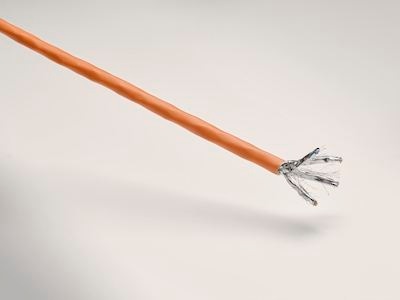World’s first chemically-foamed, high-density polyethylene grade free of azodicarbonamide.
January 23, 2020

Borealis announces the global commercial launch of HE1355, a high-density polyethylene (HDPE) grade free of azodicarbonamide (ADCA). It is the world’s first chemically-foamed, ADCA-free material intended for the production of telecommunications cables.
|
Going ADCA-free future-proofs cable producers from the effects of a potential ADCA ban. |
The use of HE1355 enables cable manufacturers to future-proof their production operations and bypass altogether any issues arising from the planned inclusion of ADCA on the EU’s Annex XIV of REACH (Authorization List). Thus cable manufacturers can rely on being able to maintain seamless production, irrespective of any potential disruption caused by legislative changes.
ADCA is principally used as a blowing agent in the production of foamed plastics. At present, it is classified as a Substance of Very High Concern (SVHC) by the European Chemicals Agency. However, it has recently been recommended for inclusion in Annex XIV of REACH, the so-called “Authorization List.” Inclusion on this list would require producers, converters, and other downstream users to seek special temporary permission for the use of this substance in production. Given the continued growth of the cable sector due to digitalization, such an action may have adverse effects on the global supply chain.
Anticipating the potentially disruptive effects on the cable industry, Borealis developed a solution for its global customers by creating a new HDPE compound, HE1355. Free of ADCA and all other SVHCs, HE1355 matches the technical performance of other chemically foamed HDPE grades currently on the market. It combines the proven advantages of its predecessors, Borealis compounds HE1345 and HE1344: superb processability, excellent stabilization, and the requisite toughness for fast multi-pair assembly.
The optimal cell structure of HE1355 makes it highly suitable for applications such as foam or foam-skin insulation for telephone singles and data cables with a typical expansion of 35–40%, as well as for dry core and petroleum jelly-filled cables. The new compound was successfully tested in a series of customer trials before its global launch in 2019.
“In developing HE1355, Borealis has gone beyond compliance to offer our customers an innovative and high-performing solution that allows for a seamless transition from existing grades to a new and improved one,” explains Bart Verheule, Borealis Head of Marketing, Energy. ”Going ADCA-free with HE1355 is a win-win all around. It not only future-proofs cable producers from the effects of a potential ADCA ban, but also allows us to help them bring energy all around.”
About the Author(s)
You May Also Like





